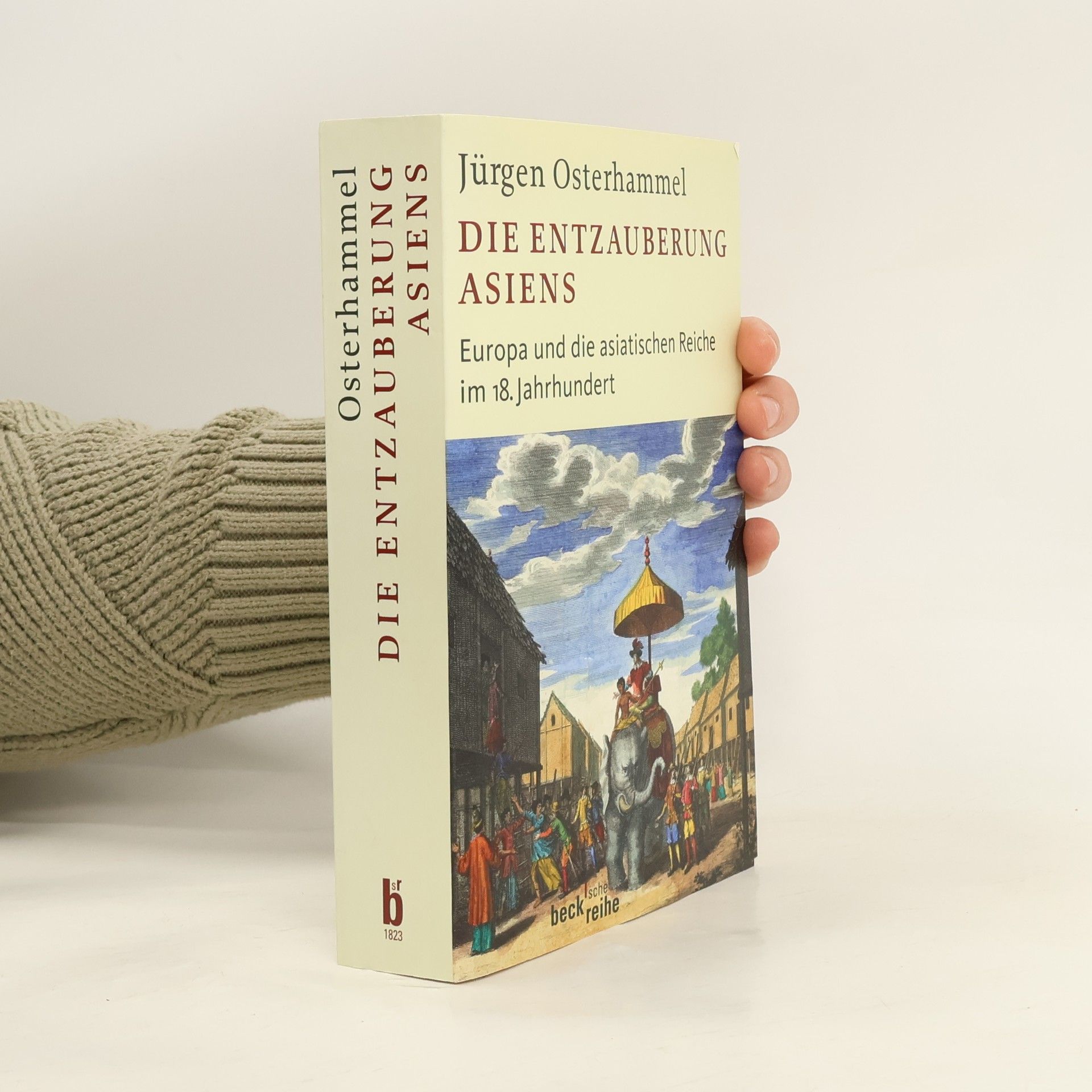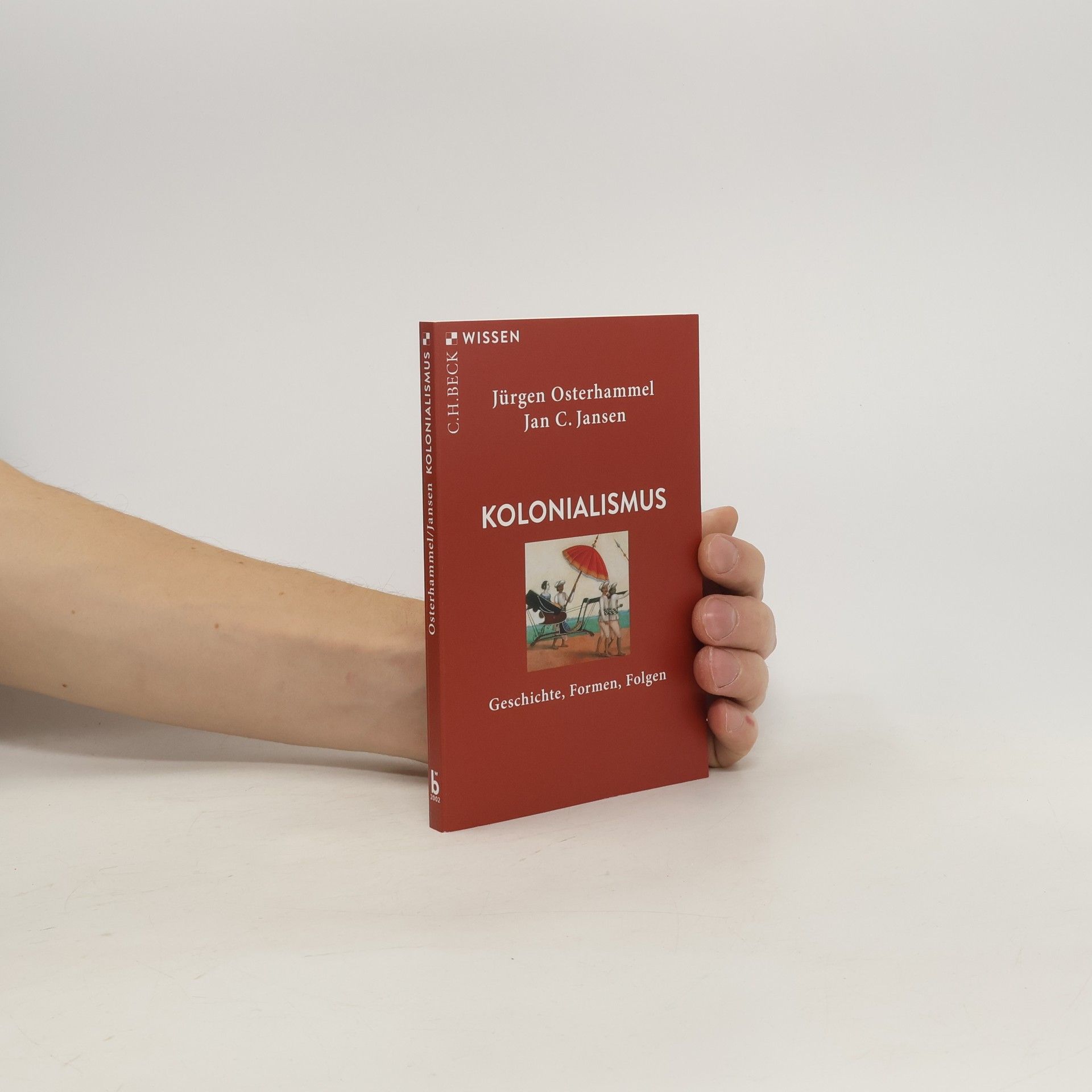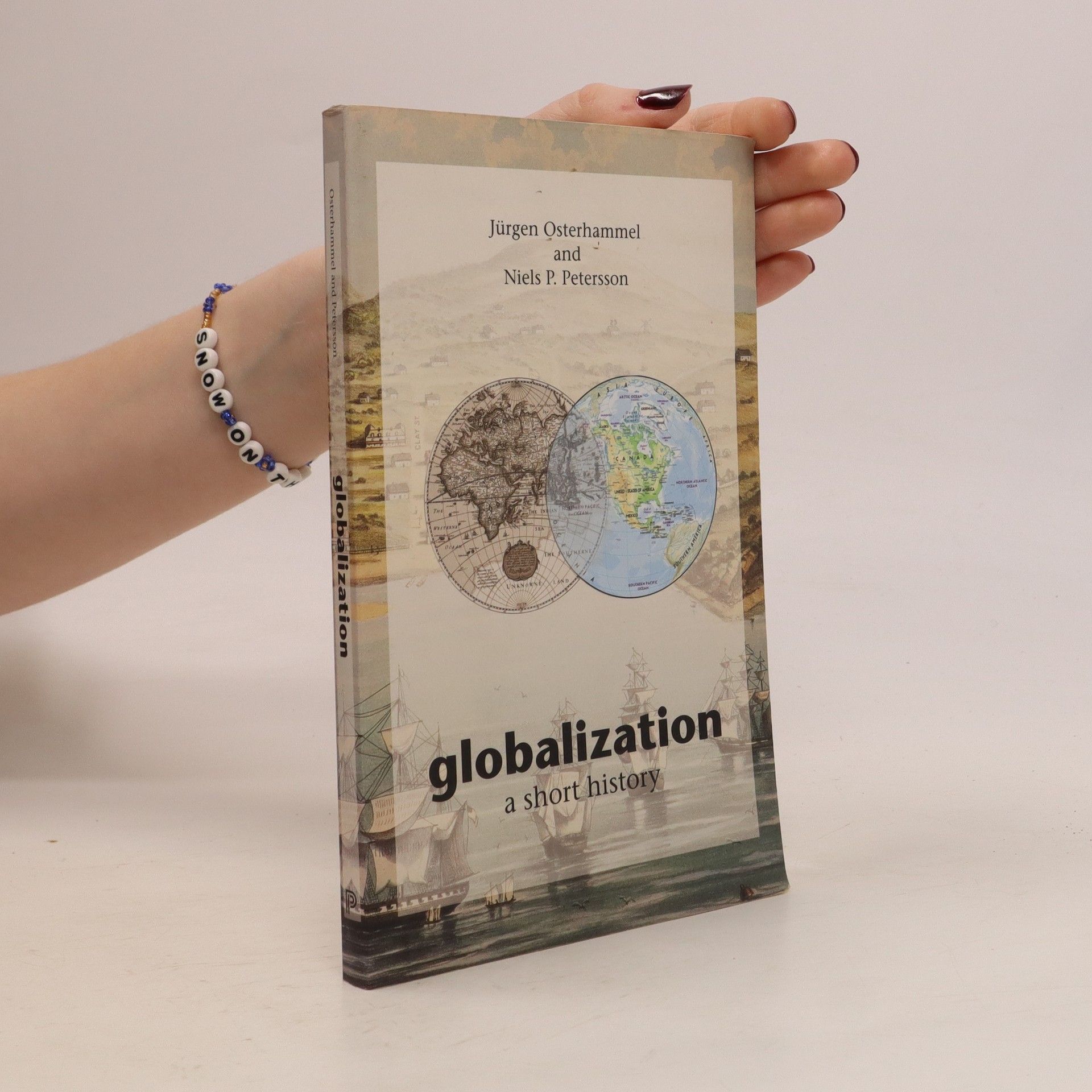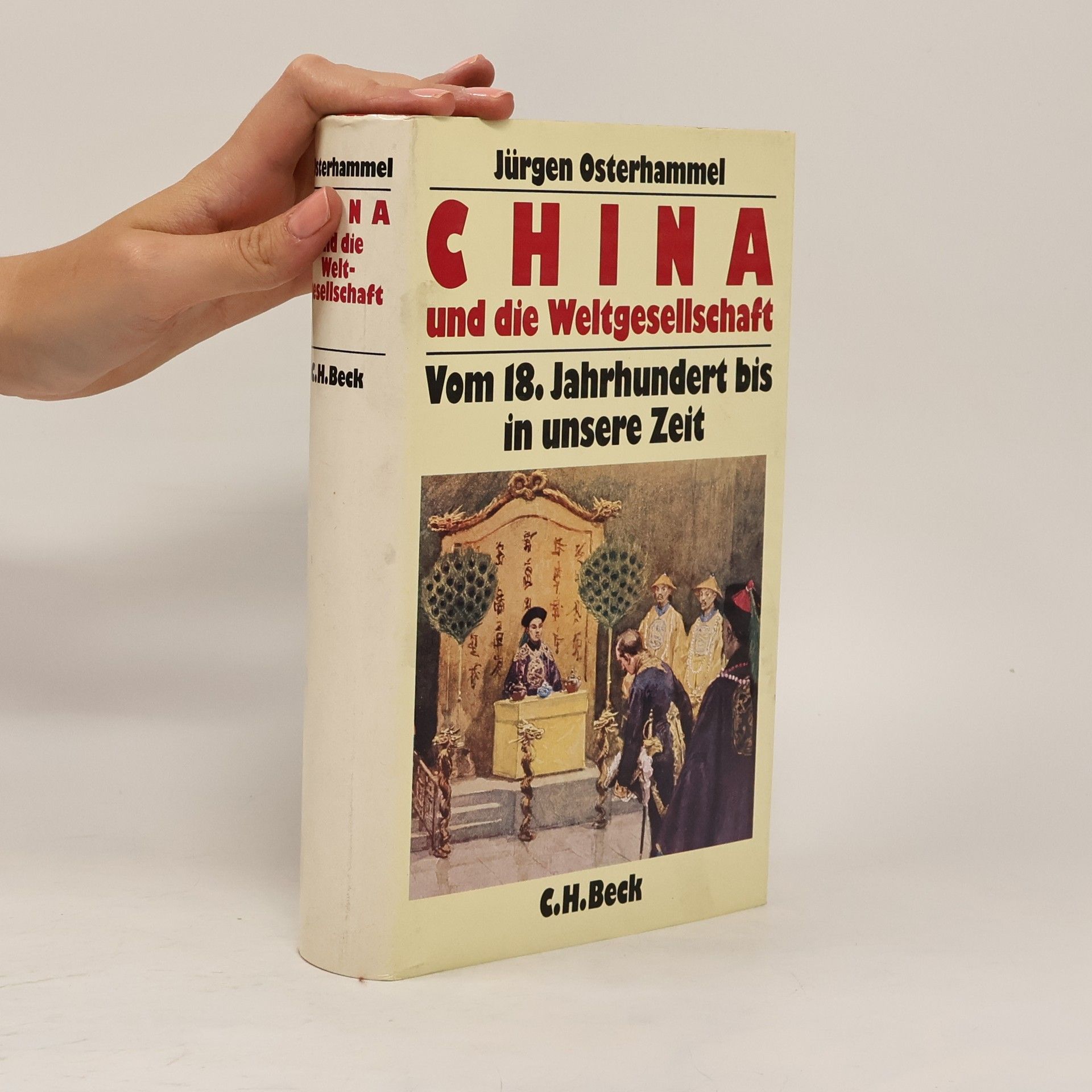The book explores the significant transformations that occurred globally after 1750, highlighting the interconnectedness of states and regions through commerce and conflict. It delves into the historical developments that shaped the modern world, focusing on events and changes outside the Western perspective. As part of a comprehensive six-volume series, it provides a detailed analysis of this pivotal era in world history, emphasizing the emergence of new dynamics that influenced global interactions.
Jürgen Osterhammel Libri
Jürgen Osterhammel è professore emerito di storia moderna e contemporanea presso l'Università di Costanza. Il suo lavoro approfondisce la storia globale, in particolare attraverso prospettive a lungo termine. Si concentra sulla storia mondiale, sulla modernità globale e sugli studi asiatici. Il suo approccio è caratterizzato da una vasta prospettiva e da un'enfasi sull'analisi comparativa.






The transformation of the world
- 1167pagine
- 41 ore di lettura
A monumental history of the nineteenth century, this work offers a panoramic and multifaceted portrait of a world in transition. Jürgen Osterhammel, an eminent scholar often compared to Braudel, transcends conventional Eurocentric and chronological narratives, presenting a truly global history of remarkable scope and depth. He delves into the powerful forces driving global change during the “long nineteenth century,” taking readers from New York to New Delhi, exploring the Latin American revolutions, the Taiping Rebellion, and the dynamics of Europe’s transatlantic labor markets alongside the struggles of nomadic and tribal peoples worldwide. Osterhammel illustrates a world increasingly interconnected by the telegraph, steamship, and railways. He examines the evolving relationship between humanity and nature, the significance of urban centers, and the impact of slavery and its abolition on new nation formations. He challenges the belief that the nation-state triumphed during this time and much more. This English edition of the acclaimed German work, also being translated into several other languages, is essential for historians. It sheds new light on this pivotal epoch, revealing how the nineteenth century set the stage for the global catastrophes of the twentieth while also fostering pacifism, liberalism, trade unions, and other vital developments.
Globalization : a short history
- 200pagine
- 7 ore di lettura
In this work, Jurgen Osterhammel and Niels Petersson make the case that globalization is not so new, after all. Arguing that the world did not turn "global" overnight, the book traces the emergence of globalization over the past seven or eight centuries. In fact, the authors write, the phenomenon can be traced back to early modern large-scale trading, for example, the silk trade between China and the Mediterranean region, the shipping routes between the Arabian Peninsula and India, and the more frequently travelled caravan routes of the Near East and North Africa, all conduits for people, goods, coins, artwork, and ideas.
30 Jahre WISSEN "Klug systematisierend ... ein fundierter Zugang zur Materie." Andreas Eckert, Die ZEIT Kaum ein Vorgang veränderte die Welt im 20. Jahrhundert so sehr wie das Ende kolonialer Herrschaft in Asien und Afrika. In systematischen und chronologischen Kapiteln beschreibt das Buch diesen Prozess mit seinen weiten Ausläufern im gesamten Jahrhundert und bietet lokale, imperiale und globale Erklärungen an. Es fragt nach den Auswirkungen der Dekolonisation auf Weltwirtschaft, internationales System und Ideengeschichte sowie nach den vielfältigen langfristigen Folgen für die ehemaligen Kolonien und Metropolen.
Kolonialismus
Geschichte, Formen, Folgen
"EINE ... SCHWER ZU ÜBERTREFFENDE DARSTELLUNG, DIE AUCH INTERNATIONAL IHRESGLEICHEN SUCHT." - ANDREAS ECKERT, DIE ZEIT Koloniale Herrschaft war ein herausragendes Merkmal der Weltgeschichte zwischen etwa 1500 und 1975. Die Autoren schildern an Beispielen aus allen Kolonialreichen der Neuzeit Methoden der Eroberung, Herrschaftssicherung und wirtschaftlichen Ausbeutung, Formen des Widerstands, das Entstehen besonderer kolonialer Gesellschaften, Spielarten kultureller Kolonisierung sowie die Grundzüge kolonialistischen Denkens und von Kolonialkultur, deren anhaltende Wirkung wieder stark diskutiert wird.
Asien war eines der großen Themen der Aufklärungsepoche. Im 18. Jahrhundert wurden auch entlegene Teile Asiens bereist und erschlossen. Um 1780 waren die Gebildeten Europas über Asien hervorragend informiert. Asien wurde damals zugleich entzaubert und besser verstanden als in den Jahrhunderten davor. Für eine kurze Zeit wurden Araber, Inder, Perser oder Chinesen zu entfernten Nachbarn, mit denen sich trotz offenkundiger Kommunikationsschwierigkeiten ein Dialog führen ließ. Weltoffenheit und wissenschaftliche Neugier kippten um 1800 in eine neue, heute noch nachwirkende Arroganz um. Zur kolonialen Unterwerfung eines entzauberten Kontinents war es dann nur ein kleiner Schritt. Für die Neuausgabe wurde das Buch um ein Nachwort erweitert, das sich kritisch mit der Diskussion um eurozentrischen "Orientalismus" auseinandersetzt.
China und die Weltgesellschaft
- 607pagine
- 22 ore di lettura
Sklaverei und die Zivilisation des Westens
- 73pagine
- 3 ore di lettura
Kolonialismus
- 142pagine
- 5 ore di lettura
Koloniale Herrschaft von Europäern - und in der ersten Hälfte des 20. Jahrhunderts auch von Nordamerikanern und Japanern - über große Teile der Erde war ein herausragendes Merkmal der Weltgeschichte zwischen etwa 1500 und 1960. Angesichts der extrem unterschiedlichen Entwicklung der früheren Kolonialgebiete in Amerika, Asien und Afrika stellt sich heute die Frage nach einer differenzierten Bewertung der Wirkungen des Kolonialismus. Das Buch unterscheidet Formen und Epochen des Kolonialismus. An Beispielen aus allen Imperien der Neuzeit schildert es Methoden der Eroberung, Herrschaftssicherung und wirtschaftlichen Ausbeutung, das Entstehen besonderer kolonialer Gesellschaften, Spielarten kultureller Kolonisierung, die Grundzüge kolonialistischen Denkens sowie die Ursachen der Dekolonisation.
Die Entzauberung Asiens
Europa und die asiatischen Reiche im 18. Jahrhundert
- 574pagine
- 21 ore di lettura
Asien war eines der großen Themen der Aufklärungsepoche. Im 18. Jahrhundert wurden auch entlegene Teile Asiens bereist und erschlossen. Um 1780 waren die Gebildeten Europas über Asien hervorragend informiert. Asien wurde damals zugleich entzaubert und besser verstanden als in den Jahrhunderten davor. Für eine kurze Zeit wurden Araber, Inder, Perser oder Chinesen zu entfernten Nachbarn, mit denen sich trotz offenkundiger Kommunikationsschwierigkeiten ein Dialog führen ließ. Weltoffenheit und wissenschaftliche Neugier kippten um 1800 in eine neue, heute noch nachwirkende Arroganz um. Zur kolonialen Unterwerfung eines entzauberten Kontinents war es dann nur ein kleiner Schritt. Für die Neuausgabe wurde das Buch um ein Nachwort erweitert, das sich kritisch mit der Diskussion um eurozentrischen „Orientalismus“ auseinandersetzt.


